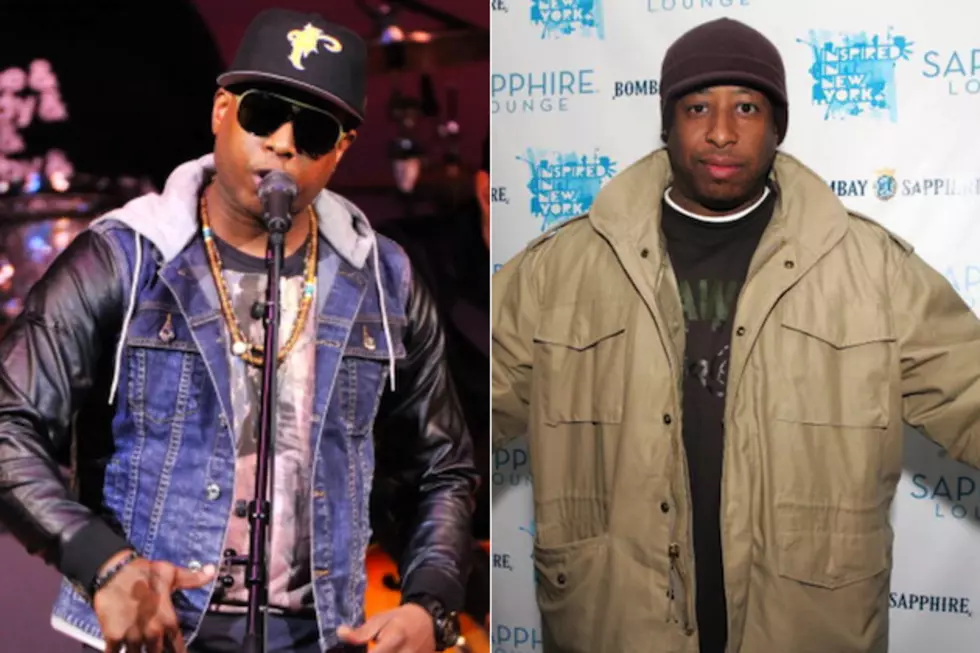
‘Mos Def & Talib Kweli Are Black Star’ Turns 15
Hip-hop was at a very hectic place in the late '90s. The genre lost both Tupac Shakur and Notorious B.I.G. because of violence; there was a schism growing. Hip-hop was quickly moving away from the street narratives, urban tales and social activism to favor its rise to mainstream. People didn't want struggle; they wanted the high life brought to them through catchy songs -- lyricism or not. Bad Boy Records thrived in this landscape, and Sean "Diddy" Combs came to represent everything hardcore rap fans hated about hip-hop.
Enter Rawkus Records, the very antithesis of Bad Boy Records. Rawkus shied away from mainstream attention and gave that East Coast, lyrical sound hip-hop fans enjoyed. Bad Boy could have their platinum records; underground fans had their own holy grail. Some would argue that holy grail was the classic LP 'Funcrusher Plus' by Company Flow -- which featured a young and hungry rapper named El-P. Other more conscious listeners had an album in the form of 'Mos Def & Talib Kweli Are Black Star.'
'Black Star' dropped on Aug. 18, 1998, and was Mos Def (now Yasiin Bey) and Talib Kweli's first major release after making waves locally with their recognizable lyrical talent.
Part of the greatness of the album is apparent in the title. Instead of simply 'Black Star,' it's 'Mos Def & Talib Kweli Are Black Star.' "We did it like that because it was very important -- and I think it was one of the smartest things that we both did -- it was very important that people understood these were two separate individuals and I had something else coming," Kweli said about Black Star.
Not a group, but two separate Brooklyn-bred individuals with their own perspectives who happen to have near-perfect chemistry. With Kweli's battle readiness mixed with Mos Def's poetic delivery, the two constantly fed off each other's energy and filled each other's gaps as they embarked on a quest to answer unanswerable questions.
It's conscious rap, but it isn't necessarily a learning session. What made 'Black Star' so accessible to the average listener is how it's rapped through the lens of two men straight out of Brooklyn trying to find their way through a society clearly out of its mind. This is what makes Mos Def's ugly truths about racism and American materialism that much more sobering on 'Thieves in the Night.'
This is also what makes Talib Kweli's praise for women that much more heartfelt on 'Brown Skin Lady.' Other tracks like 'K.O.S. (Determination)' call for empowerment through knowledge of self, which is noble and thankfully not overly optimistic. With such heavy questions like identity and self-worth in the air, they couldn't afford to be.
These aren't just B-Boys brashly shooting bars about their views on life either; there's a stunning eloquence to this masterpiece. On 'Respiration,' arguably the album's greatest song, Mos Def and Talib Kweli harps on the despairs and disillusionment that comes in the inner city. But there's a beauty to it. "So much on my mind that I can't recline / Blastin holes in the night til she bled sunshine / Breathe in, inhale vapors from bright stars that shine / Breathe out, weed smoke retrace the skyline," they rap on the hook. In these words, the cold prison of a city is given life.
Fluid production from the likes of Hi-Tek and 88 Keys buoy what would become a must-have for every underground fan. As critically acclaimed as 'Black Star' was, the duo wouldn't make another album. They'd collaborate from time-to-time -- notably on 2009's 'History' off Mos Def's 'The Ecstatic' -- but many are still waiting to take the Black Star line right on home one more time.
Watch Black Star's 'Respiration' Video
Watch Black Star's 'Definition' Video
More From TheDrop.fm









